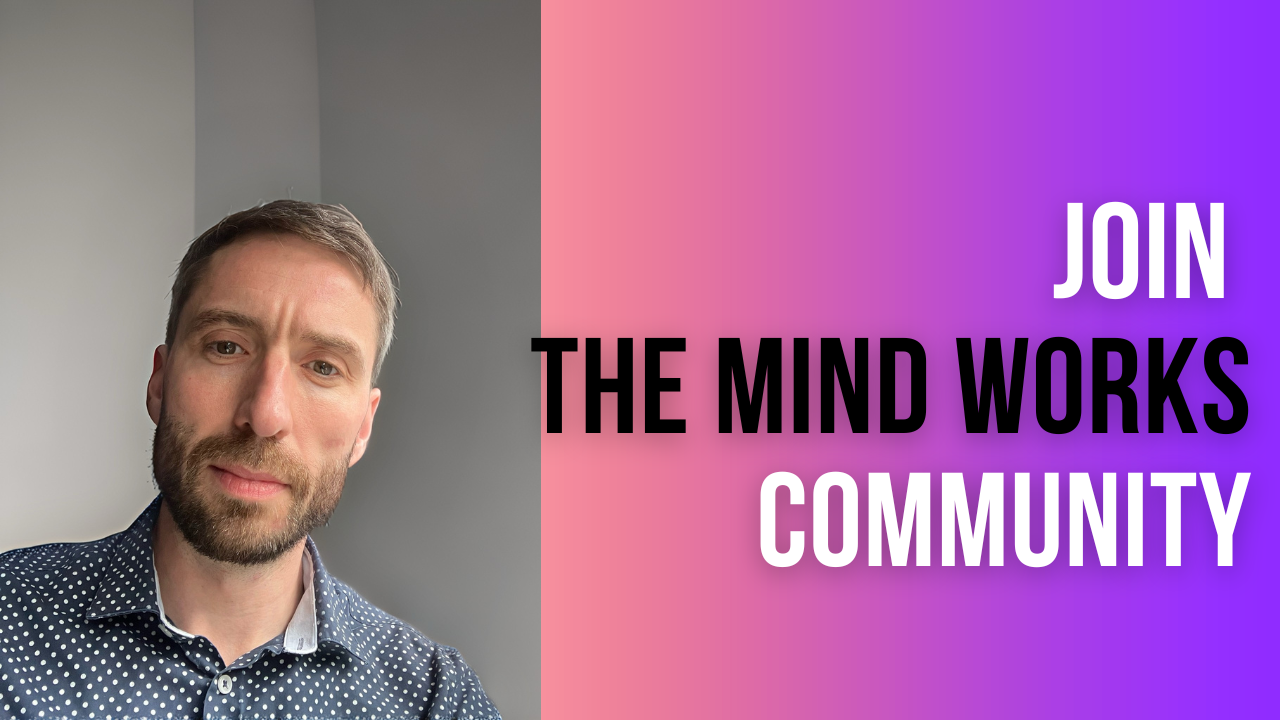Fibromyalgia, Fatigue & Weight
When your body holds onto weight — and lets go of energy.
You’re doing everything “right” — or at least trying to.
But your body isn’t responding. The weight won’t shift. Your energy crashes. And some days, just planning a healthy meal feels exhausting.
This isn’t about willpower.
It’s not about laziness.
And it’s definitely not about “just eating less.”
When you live with fibromyalgia or chronic fatigue, your body is trying to protect you. The inflammation, the shutdown, the weight — it all makes sense when you understand what your nervous system is going through.
Your System Is Overloaded — Not Broken
Fibromyalgia changes the way your body processes pain, stress, and energy. It affects your nervous system, your hormones, and your inflammation pathways — which means your body often holds onto weight even when you're eating carefully.
In fact, trying to lose weight the traditional way — by restricting calories or pushing yourself to exercise — can backfire. It adds more stress to an already overloaded system, leading to more pain, more fatigue, and more emotional shutdown.
That’s why people with fibromyalgia often say:
“Nothing works. And I don’t have the energy to keep trying.”
Here’s what’s usually missed:
-
Your nervous system may be stuck in shutdown mode (what we call the Void).
-
Your metabolism may be dysregulated by chronic stress and low-grade inflammation.
-
Your eating patterns may be shaped by comfort behaviours, energy crashes, and emotional pain — not poor choices.
And none of that is your fault.
How The Mind Works Sees It
Why your nervous system, not your willpower, might be blocking weight loss
The Mind Works model looks at weight, pain, and energy through the lens of your nervous system — not your motivation.
We use a visual tool called the Tower Block. At the higher levels (6–10), your body and mind are aligned. You have energy, clarity, and choice. But when you drop below level 6 — as many people with fibromyalgia do — the nervous system moves into survival mode.
This changes everything:
-
Food becomes comfort or fuel to get through the day
-
Movement becomes painful or exhausting
-
Weight loss becomes a distant hope — not a lived reality
We also talk about something called Role Fusion:
When an illness like fibromyalgia becomes your identity.
You’re no longer someone with fatigue — you’re someone defined by it.
This isn’t a character flaw. It’s a protective strategy the brain uses to cope.
And finally, there’s the Void — a state of numbness, apathy, and depletion.
You’re not actively panicking… but you’re not thriving either.
You might find yourself:
-
Eating on autopilot
-
Feeling disconnected from your body
-
Losing motivation to “try” because nothing seems to work anyway
These aren’t failures.
They’re adaptive responses to long-term stress, pain, and disconnection from self.
And that’s exactly where we begin.
Why Traditional Weight Loss Fails in Fibromyalgia
If you’ve ever been told to “just move more” or “cut carbs,” you’re not alone.
But you’ve probably also noticed that standard advice rarely works when you’re in pain, exhausted, or living in shutdown.
Most mainstream weight loss strategies are built around:
-
Calorie deficits
-
Increased activity
-
Weigh-ins and targets
-
Strict rules and routines
But for people with fibromyalgia, this model doesn’t just fall short — it can make things worse.
Here’s why:
🔹 1. It Adds More Stress to a System Already in Survival
If your nervous system is already overloaded, dieting becomes another pressure — triggering stress responses that increase inflammation, worsen pain, and lead to emotional crash cycles.
🔹 2. It Ignores the Role of Comfort and Emotional Eating
Food might be your only consistent source of relief in a day filled with pain and depletion.
Trying to restrict it without understanding the deeper need can create guilt, self-criticism, and binge patterns.
🔹 3. It Misses the Body’s Protective Response
Sometimes, your body holds onto weight because it thinks it’s helping.
After years of illness, trauma, or exhaustion, weight can become a form of biological armour — especially in female bodies with a history of feeling unsafe, unseen, or overwhelmed.
🔹 4. It Doesn’t Work with Fatigue — It Works Against It
Most plans assume you can cook, plan, shop, and exercise with ease.
But when you’re dealing with fibromyalgia or chronic fatigue, even light effort feels heavy. You need a model that adjusts to you — not the other way around.
That’s why The Mind Works approach is different.
We don’t ask you to overhaul your life overnight.
We don’t measure your worth by a number on the scales.
And we never assume you’re not trying.
Instead, we start by working with your body, your nervous system, and your lived reality — rebuilding energy, rhythm, and self-trust one steady step at a time.
The Real Science Behind Fibromyalgia and Weight
The pain is real. The fatigue is real. And so is the weight that won’t budge.
What you’re experiencing isn’t just in your muscles — it’s in your nervous system, your hormones, and your immune response.
Modern research is finally catching up to what many people with fibromyalgia have known for years.
Here’s what we now understand:
🔹 1. Your Nervous System Is on High Alert
People with fibromyalgia often live in a state of central sensitisation — where the brain and spinal cord amplify pain signals.
Even gentle sensations (touch, sound, movement) can feel overwhelming.
The chemical messenger substance P, which amplifies pain, is often 3x higher in those with fibromyalgia.
This means: your body isn't imagining pain — it's processing it differently.
🔹 2. Stress and Trauma Reshape the System
Many people with fibromyalgia have a history of chronic stress or childhood trauma.
This can lead to long-term changes in the HPA axis — the system that regulates stress hormones like cortisol and adrenaline.
At first, this can look like constant high alert (anxiety, sleep issues, cravings).
Later, it often leads to shutdown — emotional numbness, low energy, and weight gain linked to hormonal imbalances.
🔹 3. Inflammation Gets Stuck in ‘On’ Mode
Fibromyalgia isn’t a classic inflammatory disease — but there’s growing evidence of low-grade, persistent inflammation in the brain and body.
Pro-inflammatory chemicals like IL-6 and TNF-alpha are often elevated.
This state affects:
-
Metabolism
-
Energy production
-
Mood
-
Pain sensitivity
-
How your body stores and burns fat
🔹 4. Your Autonomic Nervous System May Be Disrupted
Heart Rate Variability (HRV) — a key marker of nervous system flexibility — is often low in fibromyalgia.
This suggests poor recovery, poor energy regulation, and high internal stress, even at rest.
Your body may stay stuck in a “freeze” response — which blocks digestion, slows metabolism, and drives cravings for comfort.
🔹 5. Hormones and Neurotransmitters Are Affected
Disrupted levels of:
-
Serotonin (mood and appetite)
-
Dopamine (motivation and reward)
-
Growth hormone (repair and fat burning)
-
Oestrogen and thyroid hormones (metabolism and mood)
…all combine to create a perfect storm of fatigue, weight gain, low mood, and pain — even if you're eating well and trying your best.
In short:
👉 Your body is not broken.
👉 Your weight is not your fault.
👉 And your pain isn’t something to “think your way out of.”
This is a nervous system and whole-body issue — and that’s exactly how we work with it.
What Helps — Gently
Simple rhythm. Steady support. Inflammation reset.
When you live with fibromyalgia or fatigue, “trying harder” rarely works.
What helps instead is a different kind of approach — one that doesn’t pressure, doesn’t punish, and starts exactly where you are.
At The Mind Works, we use a method called SSRG:
Simple. Steady. Ready. Glow.
It’s not a diet. It’s a rhythm — designed for bodies that are tired, inflamed, or stuck in shutdown.
🔹 What SSRG Offers
✅ Simple food
-
One-ingredient meals that reduce gut load and support digestion
-
No calorie counting, no restrictive rules
✅ Steady rhythm
-
Gentle routines that support your energy, reduce chaos, and help your body feel safe again
-
Flexible and forgiving — no pressure to follow a strict plan
✅ Ready for your energy level
-
SSRG adapts to where you are: whether that’s resting, recovering, or rebuilding
-
Breathwork, HRV tracking, and pacing strategies are included for nervous system support
✅ Glow: Reduce inflammation + reclaim vitality
-
Anti-inflammatory foods and low-stress routines can:
-
Support blood sugar balance
-
Ease cravings
-
Calm the stress response
-
Improve energy and reduce flare-ups
-
And all of this supports not just weight loss — but reconnection, regulation, and recovery.
🔹 It’s Not Just What You Eat — It’s How You Live
When your nervous system is stuck in survival mode, even healthy food can feel overwhelming.
We help you bring in rhythm, safety, and self-compassion — so your body learns to trust food, movement, and rest again.
Instead of:
“I need to lose weight to feel better”
We work from:
“When I feel safer and steadier in my body…
my inflammation calms down.
My energy returns.
And weight loss becomes possible.”
Weight, Energy & Identity
You are not the illness. You are not the weight.
When you’ve been living in pain for a long time, it’s easy to lose sight of where the illness ends — and where you begin.
Many people with fibromyalgia and chronic fatigue describe a feeling of becoming the condition:
“I don’t know who I am anymore.”
“It feels like this has taken over my identity.”
“I hate the way my body looks, but I can’t find the energy to change it.”
We call this Role Fusion — when survival mode becomes a way of being.
Not because you’re weak — but because your body has adapted to keep you safe.
🔹 Reclaiming Energy Means Rebuilding Identity
At The Mind Works, we don’t just look at symptoms.
We help you reconnect with the part of you that still wants more:
More comfort.
More calm.
More agency in your own body.
And yes — that can include weight loss.
But the focus isn’t just on the number on the scales.
It’s about restoring a sense of self that feels empowered, grounded, and no longer shaped by illness.
🔹 Weight Is Not Just About Food
It’s about:
-
Energy regulation
-
Nervous system protection
-
Hormonal shifts
-
Past experiences that shaped how you feel in your body
We work gently, layer by layer — supporting your body and your story.
That’s why SSRG doesn’t just offer nutrition.
It offers a way to feel safe with change.
What This Isn’t
You’ve probably tried things that felt helpful at first…
…until they became another burden. Another plan to stick to. Another thing to fail at.
So let’s be clear about what The Mind Works approach is not:
🔹 This isn’t a quick fix.
We don’t promise overnight weight loss or flare-up cures — because that’s not how healing works when your system is already overloaded.
🔹 This isn’t a prescriptive diet.
You won’t find calorie counting, weigh-ins, or restrictive meal plans here.
Instead, we focus on rhythm, nourishment, and safety — so your body begins to trust change again.
🔹 This isn’t about blame.
You are not lazy. You are not broken. And you are not to blame for how your body has tried to protect you.
We don’t ask you to “be better.”
We help you feel safer, so your body has space to breathe, recover, and let go of what it no longer needs — weight, inflammation, fear, or fatigue.
Explore the Tools
When you're ready — gently — here’s where to begin:
🔹 Join the Weight Loss & Energy Course
Designed to support rhythm, inflammation relief, and weight change from a place of kindness and clarity.
Learn More Here
Ways to Work With Me
There’s no single right way to begin. Some people want immediate relief. Others want deeper personal work. Some prefer to learn at their own pace.
The options below are designed to meet you where you are now not where you think you should be.
If you’re unsure which path is right for you, starting with a Reset Session is usually the simplest option.

🔄 Reset Sessions
If you feel stuck, overwhelmed, or at a crossroads, a Reset Session offers a focused pause and a way forward.
In 90 minutes, we work to settle your system, make sense of what’s happening, and create a clear, practical next step.
This is often the best place to start if things feel urgent or tangled.

🧩 1:1 Hypnotherapy
For deeper, ongoing therapeutic work.
These sessions help you explore patterns, beliefs and emotional responses, using hypnotherapy and psychological tools to support lasting change.
This is a good fit if you want space to work through things gradually and properly.

📚 Online Courses
If you prefer to work independently, the courses offer structured, self-paced learning using the same frameworks I teach in sessions.
You’ll gain understanding, tools and clarity, with the flexibility to move at your own speed.
Ways to Work With Me
There’s no single right way to begin. Some people want immediate relief. Others want deeper personal work. Some prefer to learn at their own pace.
The options below are designed to meet you where you are now not where you think you should be.
If you’re unsure which path is right for you, starting with a Reset Session is usually the simplest option.

🔄 Reset Sessions
If you feel stuck, overwhelmed, or at a crossroads, a Reset Session offers a focused pause and a way forward.
In 90 minutes, we work to settle your system, make sense of what’s happening, and create a clear, practical next step.
This is often the best place to start if things feel urgent or tangled.

🧩 1:1 Hypnotherapy
For deeper, ongoing therapeutic work.
These sessions help you explore patterns, beliefs and emotional responses, using hypnotherapy and psychological tools to support lasting change.
This is a good fit if you want space to work through things gradually and properly.

📚 Online Courses
If you prefer to work independently, the courses offer structured, self-paced learning using the same frameworks I teach in sessions.
You’ll gain understanding, tools and clarity, with the flexibility to move at your own speed.


